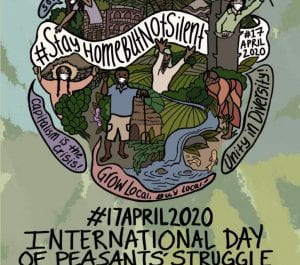A phenomenon that is currently sweeping through the ‘environmental’ movement, is the concept of carbon credits; paying a variety of different merchants for performing carbon offsets. The most recent of these carbon markets are farmers hoping to sell their ability to sequester carbon in the soil through no till agriculture techniques. This is the idea discussed in, “Is carbon farming a climate boon, or boondoggle?” an article reviewed by one of my classmates (Anuras). This Blog post is in response to their blog post expanding on their critique of the carbon credits movement in general.

The Art of Green Washing, Tom Fishburne
Anuras brings up a good point when they say, “Further, affluent consumers are drawn to climate friendly solutions such as carbon sequestration but do they … simply commend themselves for doing a good deed.” This statement helped me realize the connections this style of response for carbon sequestration has to the response the U.S. has taken

Developed Economy, Max Gustafson
with surplus grain supplies. Rather than address the problem at its source, the policy and production level, the solution the current system comes up with is to expand the consumer market, taking an overproduction problem and selling the solution back to the public as a consumption problem. They tell us that if we just give enough food away in the form of foreign aid, re-capture just enough carbon, simply consume enough, then we won’t have to change the way we live.
However, like we discussed in class, the people most likely to be impacted by the coming climate change are not those doing most of the consumption or emissions, but those in developing countries, the very same group of people most damaged by the processes of dumping surplus crops as ‘food aid’. We can no longer rely on individualistic solutions like carbon credits that inherently rely on consumption, to solve systemic issues. Our ‘perpetual growth’ economy is being fueled at the detriment of developing nations and climate mitigation. To truly address these institutional issues beyond buying some ‘green’ or ‘fair trade’ products we must come together as active citizens instead of passive consumers. It is up to us: we can either voluntarily change the way we live now or let climate change choose for us at a deadly cost in the future.









